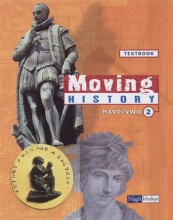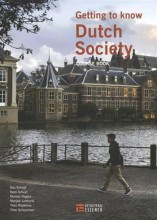Summary: Moving History / Havo/vwo Onderbouw / Deel Textbook 2 | 9789042541290 | Dalhuisen
- This + 400k other summaries
- A unique study and practice tool
- Never study anything twice again
- Get the grades you hope for
- 100% sure, 100% understanding
Read the summary and the most important questions on Moving History / Havo/Vwo Onderbouw / Deel Textbook 2 | 9789042541290 | Dalhuisen
-
1 the beginning of a new age
This is a preview. There are 1 more flashcards available for chapter 1
Show more cards here -
1.4.1 Rulers separate the Church from the State
-
Until the 13th century most Europeans believed that God wanted only one person to rule over society. Who is this person?
The pope, as a successor of the apostle Peter. -
Which power did the pope have?
The pope had more power than the rulers, the rulers had to follow the popes rules which were to govern properly and the fight against the heathens otherwise the pope could dethrone them. -
What does The Separation of Church and State mean?
The pope was in charge of religious matters and the rulers were in charge of worldly matters such as governing the country, justice and warfare. -
1.4.2 The rise of absolutism
This is a preview. There are 3 more flashcards available for chapter 1.4.2
Show more cards here -
What did the Pope against the absulutism?
The pope realized that he hadn't the power to dethrone rulers or to force them to change their politics. -
What are the characteristics of an autocracy?
- all the power was in the hand of the ruler
- the ruler was not accountable to his subjects
- the ruler believed that he as king was appointed by God
- the subjects of the ruler had to obey him without questions
- this form of government is known as absolutism -
What was the role of the clergy in an autocracy/absolutism?
The rulers gave the clergy still important duties in the government and the rulers also continued to take account of the wishes of the Church. So not much difference for the clergy. -
Which country became an example for the rest of Europe regarding to Absolutism?
France with the French absolutism and the French kings Louis XIV and Louis XVI -
1.4.3 Only the parliaments of England and the Dutch Republic had any influence
This is a preview. There are 2 more flashcards available for chapter 1.4.3
Show more cards here -
Since when did most European states have a parliament?
Since the Middle Ages. -
Did the influence of the parliaments change as the rulers got more power?
Yes, the parliaments had less influence and the ruler decided whether the parliament would assemble or not and he also could ignore the parliament's advice. -
In the Early Modern Period, were all European countries ruled by a monarch with absolute power?
No, among others England and the Republic of the United Netherlands were republics = form of government with power to the people, not a single ruler.
- Higher grades + faster learning
- Never study anything twice
- 100% sure, 100% understanding
Topics related to Summary: Moving History / Havo/vwo Onderbouw / Deel Textbook 2
-
The beginning of a new age - The schism in the Christian Church in Western Europe - Causes of the Reformation
-
The beginning of a new age - Lutheranism
-
The beginning of a new age - Calvinism
-
The beginning of a new age - The response of the Catholic church: the Counter-Reformation
-
The beginning of a new age - Religion and politics
-
Industrialization and 'isms - characteristics of an industrial society































